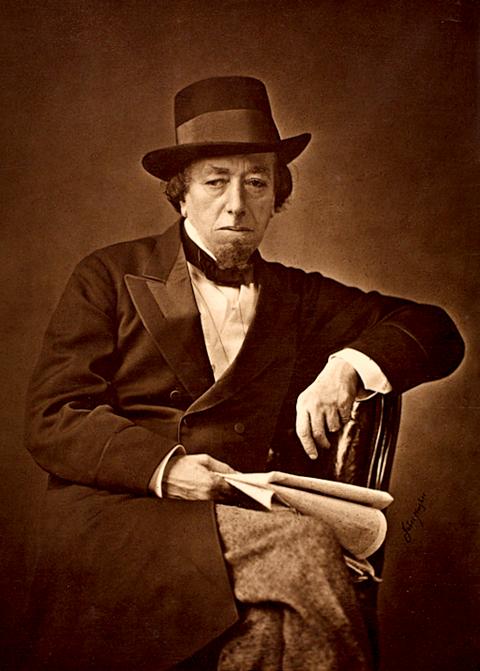Chinese Practice
咬文嚼字
(yao3 wen2 jiao2 zi4)

Photo: Wikimedia Commons
照片:維基共享資源
to bite words and chew characters
成語「咬文嚼字」的字面意思是「咬和咀嚼文字」,指人過於講究措辭。當然,這種對細節的關注可以是件好事,但也可能會被認為完全是矯揉造作、假惺惺。
因此,「咬文嚼字」的意義多是負面的。
例如清代中期的小說《紅樓夢》,曹雪芹在第二十七回寫道:「他們必把一句話拉長了,作兩三截兒,咬文嚼字,拿著腔兒,哼哼唧唧的,急的我冒火」(他們說話一定都會把句子拉長,分成兩三段,字句蜿蜒曲折、矯揉造作,讓我著急得生氣)。「咬文嚼字」也可用來諷刺人刻意把話說得冗長繁複,例如明末清初作家褚人獲所著之《隋唐演義》第六回:「如遇患難,此輩咬文嚼字之人,只好坐以待斃,何足為用?」(像這種刻意賣弄,把話講得冗長迂腐的人,如果遇到災難,只能待在那裡等死,這有什麼用呢?)
「咬文嚼字」的咬碎和咀嚼的意象,很容易讓人誤以為其意和英文片語「not to mince words」相同。然而,此語中「mince」的意思,並非我們一般所熟知的動詞「絞碎」(把肉、藥草、洋蔥等剁碎)──這「絞碎」的意義源於拉丁字「minutus」(意為「小」)及「minutiae」(小口咬)。
「not to mince words」中的「mince」,指的是「用禮貌的語言來批評某事或人」或「為禮節而自我克制」。威廉‧莎士比亞在一六○六年的劇作《安東尼與克麗奧佩特拉》中第一幕第二景便用了此語,讓莎翁筆下的安東尼說道:
Speak to me home. Mince not the general tongue.(有話直說,不必吞吞吐吐)
Name Cleopatra as she is called in Rome.(稱呼克利歐佩特拉,按照她在羅馬所被稱呼的那樣)
Rail thou in Fulvia’s phrase, and taunt my faults (用福爾維亞的詞句來罵我)
With such full license as both truth and malice
Have power to utter. (用真理與敵意所能有的一切力量來盡情指責我的過錯)
莎翁這句「mince not the general tongue」(有話直說,不必吞吞吐吐),是用來表達否定:「do not mince your words」(不要矯揉造作地說)。這也是英國政治家及作家班傑明‧迪斯雷利(一八○四~一八八一)一八二六年的小說《維維安‧格雷》中所用的寫法:「Your Lordship’s heart is very warm in the cause of a party, which, for I will not mince my words, has betrayed you.」(閣下對政黨的理想是滿懷熱忱的,而我要直言不諱地說,這政黨背叛了你)。
因此「not mince your words」即意指用直截了當、直言不諱的方式說話,不做任何修飾來緩和所說內容的力道。「not mince your words」的用法,和「咬文嚼字」恰恰相反。
(台北時報林俐凱譯)
很多偶像劇的台詞都好拗口,咬文嚼字的,根本就不像我們平常在說的話。
(The dialogue in many idol dramas is so contrived and unnatural, it bears little resemblance to how people normally speak.)
他寫文章總愛咬文嚼字、故弄玄虛,以為讓人看得一頭霧水,就表示自己很有學問。
(The way he writes is pretentious and unnecessarily complicated; it’s as if he thinks that baffling people with words is a way to show his own erudition.)
英文練習
to not mince one’s words
The Chinese idiom 咬文嚼字 means, literally, to “bite words and chew characters,” and refers to the trait of being meticulous about one’s choice of wording. Such attention to detail can, of course, be a wonderful thing, but it can also be regarded as utterly pretentious and contrived.
The idiom, then, is mostly used in a negative way.
In Chapter 27 of the mid-Qing Dynasty novel hong lou meng (Dream of the Red Chamber), for example, Cao Xueqin writes 他們必把一句話拉長了,作兩三截兒,咬文嚼字,拿著腔兒,哼哼唧唧的,急的我冒火 (How they drag out their sentences, saying things in 50 words that could be said in five, with their meticulous meanderings and their affected manner of speaking, whining on and on, I find it so infuriating.”) It can also be used to satirize the pretension of using long words. In Chapter 6 of the suitang yanyi (Legends of the Sui and Tang Dynasties) by the late Ming Dynasty and early Qing Dynasty writer Chu Renhuo, we read, 如遇患難,此輩咬文嚼字之人,只好坐以待斃,何足為用?(What godly use are the people of today, with their clever words and pedantry: how are these going to help them when disaster looms?)
The mastication mentioned in 咬文嚼字 makes it seem a perfect fit for the English alternative “not to mince words.” Mince, here, is not used in the familiar sense of the verb meaning to chop (meat, herbs, onions, etc.) into little pieces (which, interestingly, comes from the Latin minutus (small) and minutiae (“small bits”)).
The “mince” in the phrase means “to use polite language when criticizing something or someone,” or “to restrain oneself in the interest of decorum.” William Shakespeare used it in Act 1 Scene 2 of his 1606 play Antony and Cleopatra, in which he has Antony say:
Speak to me home. Mince not the general tongue. (Speak plainly. Don’t tone down what people are saying)
Name Cleopatra as she is called in Rome. (Call Cleopatra what the Romans call her)
Rail thou in Fulvia’s phrase, and taunt my faults (Use Fulvia’s abusive language, and feel free to taunt me)
With such full license as both truth and malice
Have power to utter (as an enemy with truth on his side would).
When Shakespeare writes “mince not the general tongue,” he uses it in the negative: “do not mince your words.” This is also the format used by the British statesman and writer Benjamin Disraeli (1804 – 1881) who, in his 1826 story Vivian Grey, wrote “Your Lordship’s heart is very warm in the cause of a party, which, for I will not mince my words, has betrayed you.”
To “not mince your words,” then, means to speak in a straightforward, plain-spoken or blunt way, abandoning any attempt to cushion the force of what is said. In use, it is the opposite of 咬文嚼字.
(Paul Cooper, Taipei Times)
Did you hear him laying into that official? He doesn’t mince words, does he?
(你聽到他罵那個職員了嗎?措詞也不稍微修飾一下。)
You can be honest with me. Tell me the truth. There’s no need to mince your words.
(你可以跟我實話實說,沒必要在那邊咬文嚼字、拐彎抹角的。)

A ‘Dutch angle’ is a classic camera technique that has been used in filmmaking since the 1920s, when it was introduced to Hollywood by German Expressionists. Why is it called the Dutch angle if it’s actually German? In fact, it has no __1__ to the Netherlands. The term “Dutch” is widely believed to be a misinterpretation of “Deutsch,” which means German in the German language. In any event, the name stuck, and the Dutch angle remains a popular cinematic tool to this day. This technique involves tilting the camera on its x-axis, skewing the shot to create a sense of

A: After “God of Songs” Jacky Cheung sang for late singer Khalil Fong recently, music streaming service KKBOX also paid tribute to Fong by releasing his greatest hits online. B: The 20th KKBOX Music Awards ceremony is taking place at the K-Arena in Kaohsiung tomorrow. Fong performed at the ceremonies in the past. A: Who are the performers this year? B: The performers include Taiwanese groups 911, Wolf(s), Ozone, Singaporean pop diva Tanya Chua, and K-pop group Super Junior. A: South Korean stars actually took four spots among KKBOX’s 2024 Top 10 singles, showing that K-pop is still

Historians are rethinking the way the Holocaust is being presented in museums as the world marks the 80th anniversary of the liberation of the last Nazi concentration camps this month. Shocking images of the mass killings of Jews were “used massively at the end of World War II to show the violence of the Nazis,” historian Tal Bruttmann, a specialist on the Holocaust, told AFP. But in doing so “we kind of lost sight of the fact that is not normal to show” such graphic scenes of mass murder, of people being humiliated and dehumanized, he said. Up to this

Dos & Don’ts — 想想看,這句話英語該怎麼說? 1. 能做的事都做了。 ˇ All that could be done has been done. χ All that could be done have been done. 註︰all 指事情或抽象概念時當作單數。例如: All is well that ends well. (結果好就是好。) All is over with him. (他已經沒希望了。) That’s all for today. (今天到此為止。) all 指人時應當作複數。例如: All of us are interested in his proposal. All of us are doing our best. 2. 我們這麼做有益於我們的健康。 ˇ What we are doing is good for our health. χ What we are doing are good for our health. 註︰以關係代名詞 what 引導的作為主詞的子句,動詞用單數。如: What he said is true. 3. 大家都沿著步道跑。 ˇ Everybody runs along the trail. χ Everybody run along the trail. 註︰everyone 是指一大群人,但在文法上一般用單數。 4. 桌上有一本筆記本和兩支筆。 ˇ There were two